The final tryout match for the AFC U23 Asian Cup, which is crucial for securing a ticket to the Paris Olympics. Four players have been selected from Tokyo: Taishi Brandon NOZAWA, Kashif BANGNAGANDE, Kuryu MATSUKI, and Ryotaro ARAKI, for two matches against the already qualified U-23 Mali national team and U-23 Ukraine national team. In the match against Mali on March 22, NOZAWA and BANGNAGANDE were part of the starting eleven, while MATSUKI and ARAKI were in the starting eleven for the match against Ukraine on the 25th.
The match against the U-23 Mali national team was the first encounter with an African team for the U-23 Japan national team led by Go OIWA. Despite taking the lead with a set piece early on, the match ended in a 3-1 defeat due to coordination errors against an opponent that combined speed, power, agility, and organization. It proved to be fruitful for Japan in terms of both challenges and gains.
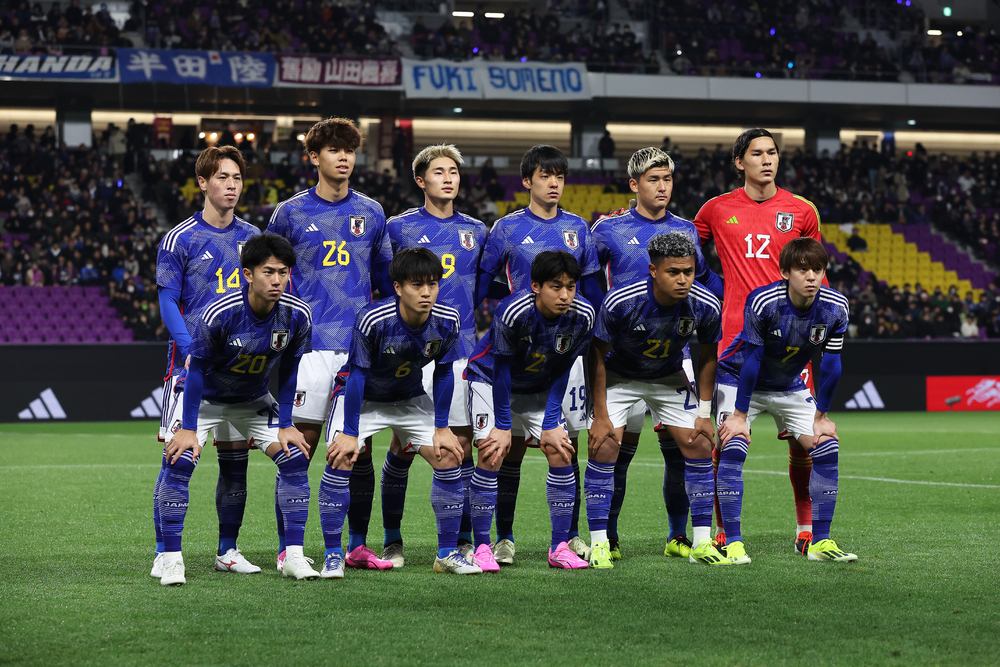
Active participation in attacks and physical strength that does not back down
Kashif BANGNAGANDE
Kashif BANGNAGANDE, who started as a left side back, showcased an aggressive play by initiating a dribble in a high position and earning a foul near the penalty area in the 9th minute of the first half. He shouted instructions from the back, urging the team to "switch!" and "mark is open!", tightening the team's focus while controlling the final line from his position as a left side back. In the 12th minute of the second half, he earned a corner kick with a powerful, non-spinning long shot from about 40 meters. He remained on the pitch until the 19th minute of the second half.
I felt that my physicality, power, and speed were strong, but personally, I had a greater sense of capability in one-on-one situations and clashes than I expected. (While I was able to show my strengths in the attacking aspect) as a fullback, I am a defensive player, so conceding three goals is not good. We need to correct that both as a team and individually. I really feel the significant responsibility that players on the field have, especially after being given the opportunity to represent the national team. When on the field, everyone must act as if they are a leader, and I take it upon myself that even goals conceded that I am not directly involved in are my responsibility.
I feel that strong teams have a great sense of responsibility from each individual, and we must become players and teams like that. I also believe that I need to actively communicate and express myself. I want to pursue a higher level both in Tokyo and with the national team, and while defense is a fundamental aspect, I want to become a player who is intimidating in terms of offense.

Guardian who experienced the Japan national team
Taishi Brandon NOZAWA
For Taishi Brandon NOZAWA, who was entrusted with the role of goalkeeper in this match, it is the official match pitch since the final league match of last season. After being selected for the Japan national team in the New Year's match against Thailand and the AFC Asian Cup in January, he has spent days warming the bench in Tokyo due to the impact of an injury that delayed his return, marking his comeback to competitive play after about three and a half months.
In the 5th minute of the first half, despite facing a one-on-one situation with an opposing player breaking through, he remained calm and waited, effectively limiting the shooting angle. In the 14th minute of the first half, he also responded to an opposing player's middle shot after cutting in.
However, in the 34th minute of the first half, due to a misalignment in the build-up, we lost the ball in front of the goal and conceded an equalizer. Then, in the 8th minute of the second half, we failed to clear a powerful, spinning-free shot from the blind side, allowing the opponent to push us back and take the lead. In the closing stages, we were also broken down on the right side and conceded an additional goal.
"I recognized this match as a game to build momentum for the final qualifiers for the Asian Cup. (After a long time since my last official match) I think the mistakes that occurred were influenced by my lack of match experience, but I don't want to use that as an excuse. Personally, I was in good condition, so it had been a while since I made such mistakes, but they were plays that should never happen in an international match. There were mistakes from the goalkeeper that shouldn't happen, but I believe we can correct those quickly. The final qualifiers are coming up soon, and I want to raise my focus for that."
The match ended in a disappointing result, but the experienced goalkeeper, who has played for the Japan national team, led the team with loud coaching from the back, echoing throughout the stadium during this long-awaited game.
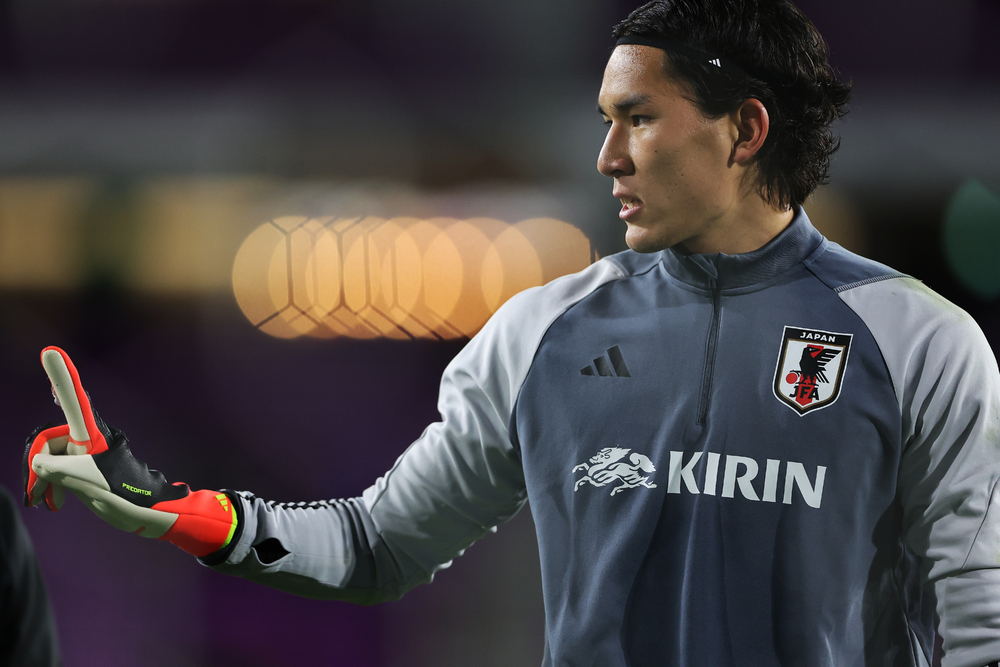
In the U-23 match against the Ukraine national team, held two days later, the pressing from the front, which is the lifeline of Oiwa Japan, functioned well against an opponent that built up play systematically. Each player showed good play by receiving the ball effectively, which smoothed the flow of the attack. Japan took the lead with a set piece in the 3rd minute of the second half and added another goal by winning the ball high up the pitch through aggressive pressing in the 31st minute of the second half. Although the opponent was different from the one in the match against Mali, the team cleared the issues seen in the first match and achieved victory by showcasing their strengths as a team.
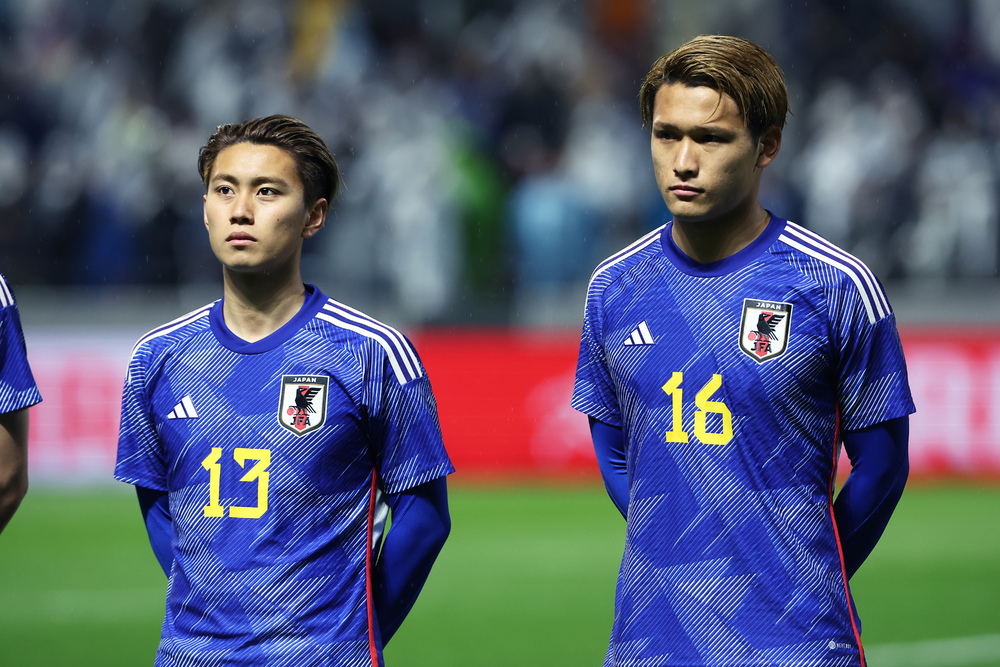
The captain of Tokyo who exudes presence in both offense and defense
Kuryu MATSUKI
Kuryu MATSUKI, who started alongside Ryotaro ARAKI as an inside half in a 4-3-3 formation, showcased his characteristic work rate and ball recovery skills throughout the match. Not only did he contribute to a seamless transition from defense to attack with his proactive pressing, but in the 33rd minute of the first half, he executed a direct volley with his left foot from a corner kick that had bounced off the ground. Unfortunately, it was deflected off the crossbar, but he demonstrated his presence in both offense and defense.
In the 36th minute of the first half, a pinpoint feed with the left foot was directed to Araki, who was trying to run through the space. Although it did not lead to a clear scoring opportunity, it hinted at the great potential of the 'Aoiaka Hotline'.
"I think we were able to attack very fluidly, and now we just need to finish. I believe we were able to move smoothly to the finish, and we created many chances. Scoring from set plays, which is our characteristic, is something I can view very positively. In the future, I want to score more in the flow of the game, and next, I want to show that in Asia. (Regarding the collaboration with Araki) When Taro-kun is around, it makes things much easier for me. We are always able to look out for each other, and even when we return to Tokyo, we can enhance that kind of combination. I want to further refine that aspect and also raise my individual level."
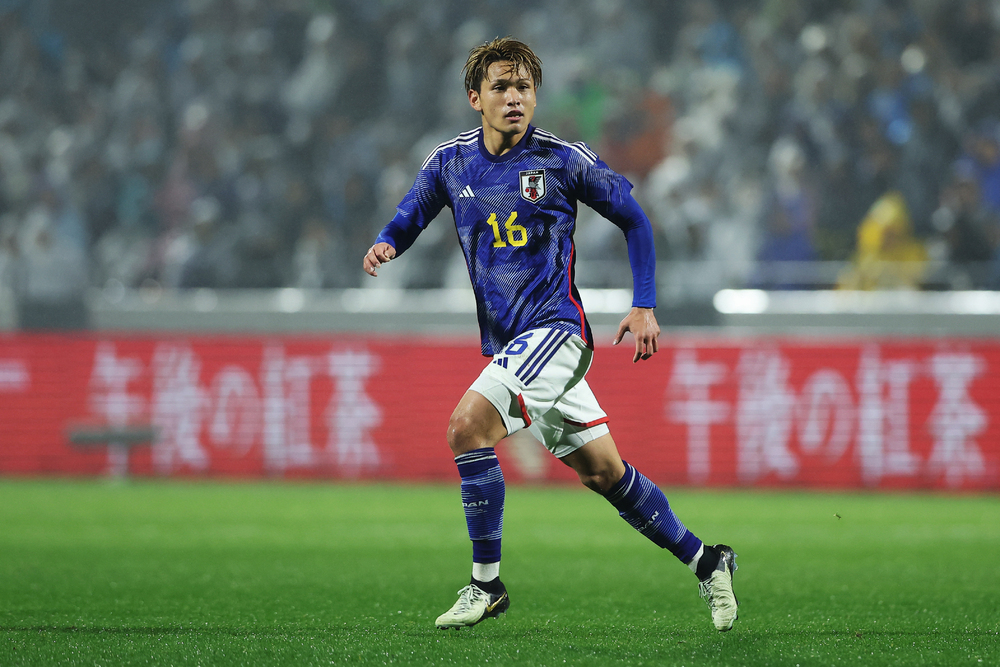
Be the center of the attack and create scoring opportunities
Ryotaro ARAKI
And shining brightly in this match was Ryotaro ARAKI, who was called up to the Japan national team for the first time in two years since March 2022. Having scored four goals in four league matches in Tokyo, he stepped onto the pitch with the feeling that "fighting for Japan is something special." From the start, the ball seemed to gravitate towards him, making it feel like it was "Araki's team," as he got involved in numerous chances.
Right from the start, while holding off the opposing defender in the penalty area, he drifted to the right and took a shot. In the 12th minute of the first half, he combined with Joel chima FUJITA (Sint-Truiden) to penetrate the near pocket on the left side. Furthermore, in the 14th minute of the first half, after receiving a sideways pass, he skillfully maneuvered the ball forward and unleashed a powerful shot with his right foot. Then, in the 22nd minute of the first half, he drew pressing from the front line, creating a scoring opportunity. Just two minutes into the second half, he brought the ball in from the left side and fired a fierce shot with his right foot, leading to a corner kick from which Keiun Sato (Bremen) scored the opening goal.
On the pitch of Kitakyushu Stadium, despite being a representative after a long time, Araki was at the center of the attack just like in Tokyo.
Game captain Fujita, who entered as an anchor, said, "(Araki) has really high skills in receiving the ball with precision in passing and in space. There were many scenes where the ball naturally came in or passed after winning it," showing immediate smooth coordination and quickly establishing himself as a candidate for a regular position.
Personally, although I couldn't achieve a goal, the team made significant gains. Araki himself calmly expressed his satisfaction, saying, "I was able to show what I have in both offense and defense. I truly believe I was able to play my game and do what I can."
"The ball moved very well, and we were able to advance while exploiting the opponent's weaknesses. (The relationship in midfield with Joel chima FUJITA and Matsuki) is really good. The corner kick that led to the opening goal was as planned. Continuing from the league matches, my touch on the ball felt good, so I was actively aiming for shots. I am ready to go to the (AFC U23 Asian Cup), and although the time is short after returning to (Tokyo), I want to work hard to improve my performance when selected."
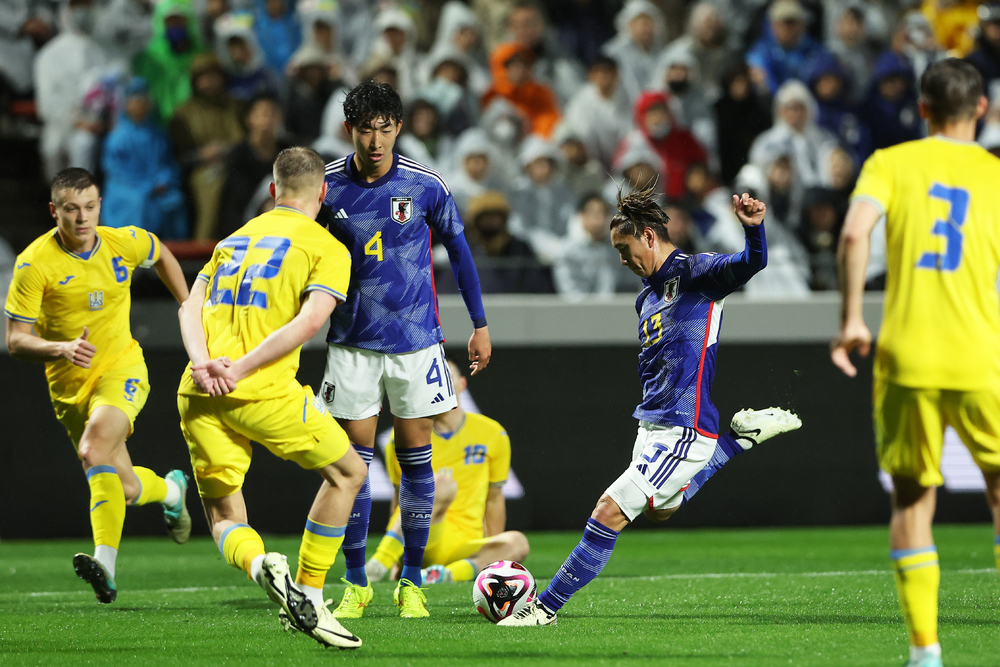
A week of representatives, each with their own style. It became a period where everyone renewed their vows for the future, armed with both confidence and challenges. In early April, the squad for the AFC U23 Asian Cup will be announced, and Ohira Japan will depart for Qatar, the battleground for their first match on April 16. With the ambition and determination gained from this activity in their hearts, the young representatives from Tokyo will once again don the blue and red uniforms and stand on the J pitch.
text by Tomo Aoyama
photo by Kenichi Arai
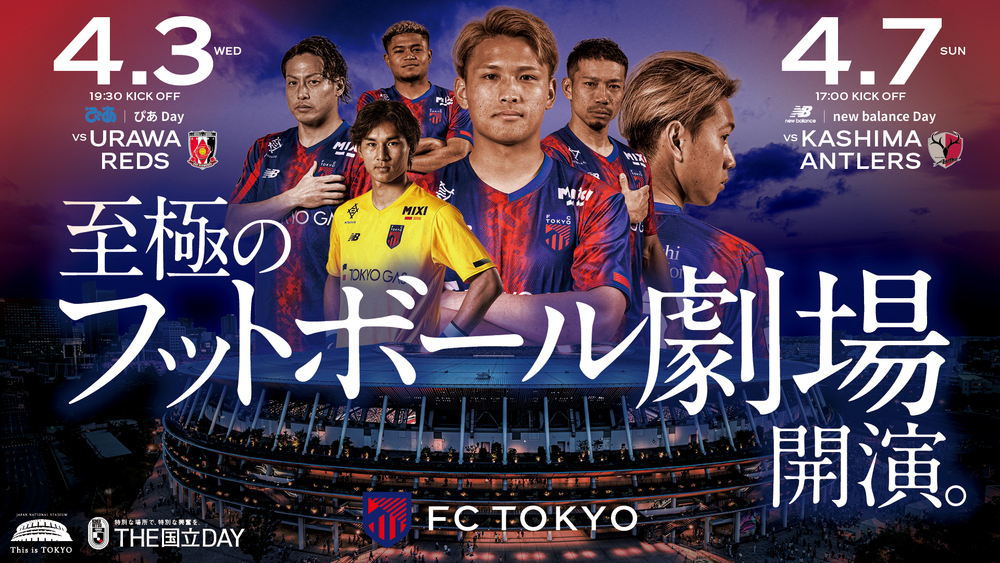
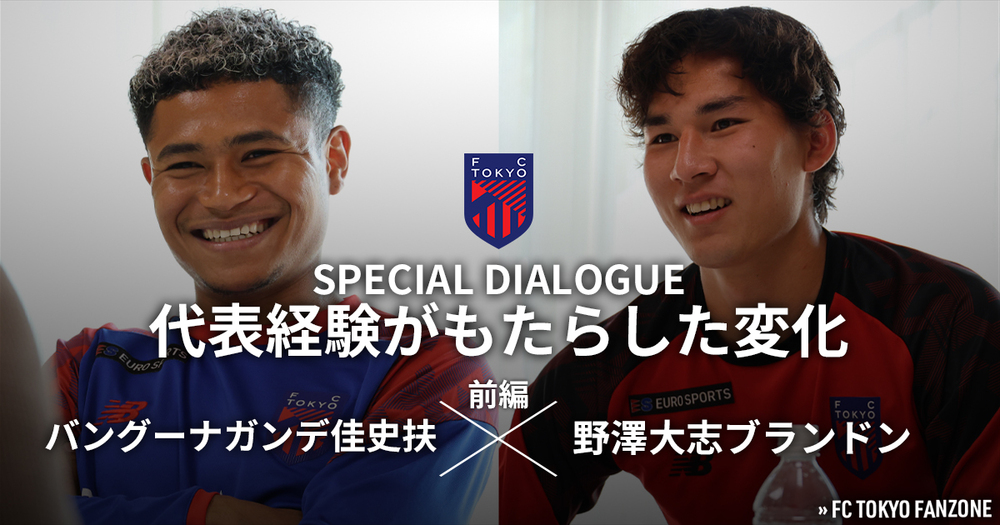
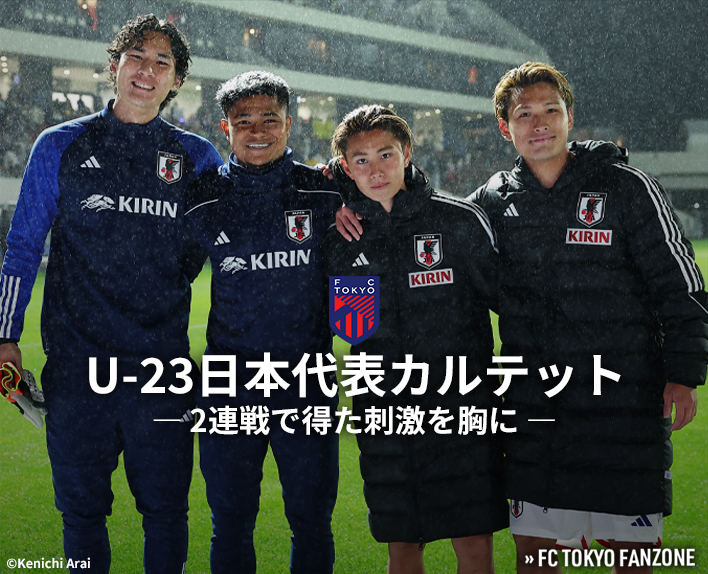



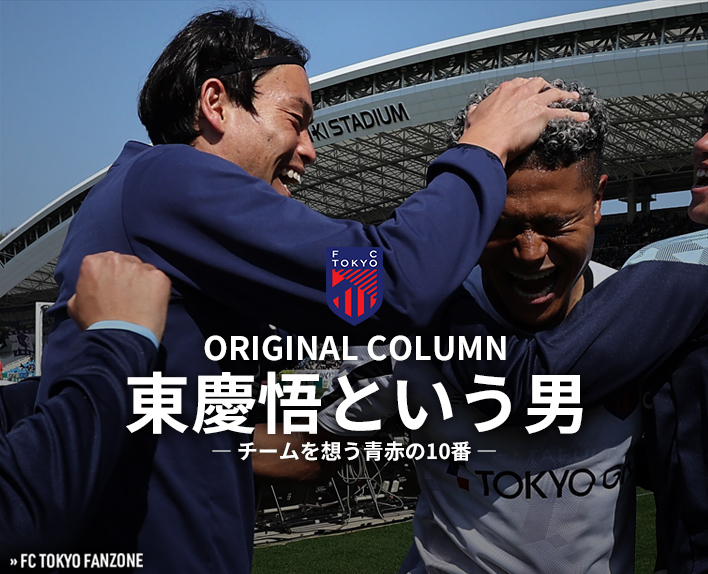
![[Tamagawa Classico Special Edition] 3/30 Kawasaki Match MATCH PREVIEW & INTERVIEW supported by mechacomic](/en/upload/Tokyoism/images/img_581_6606097b-bf68-492d-aaef-2e600a000292.jpg)